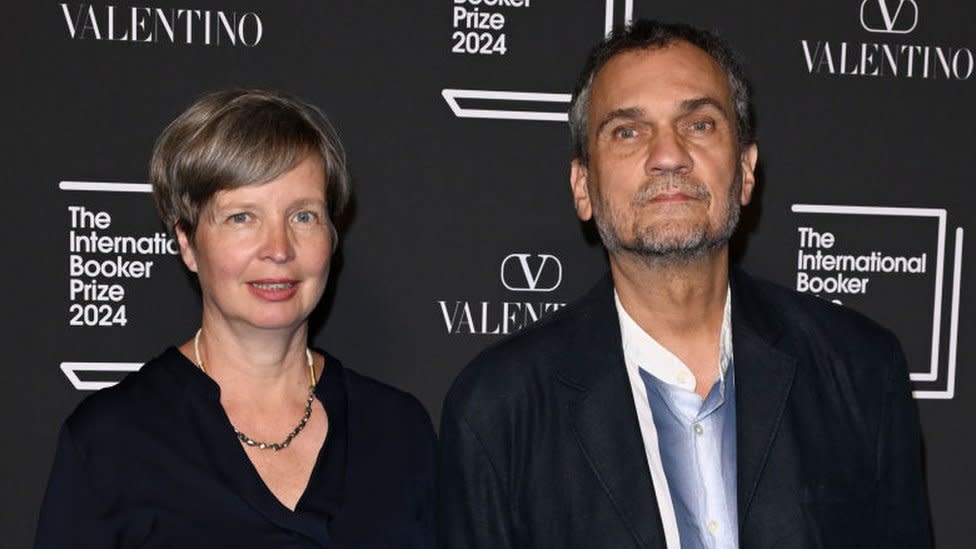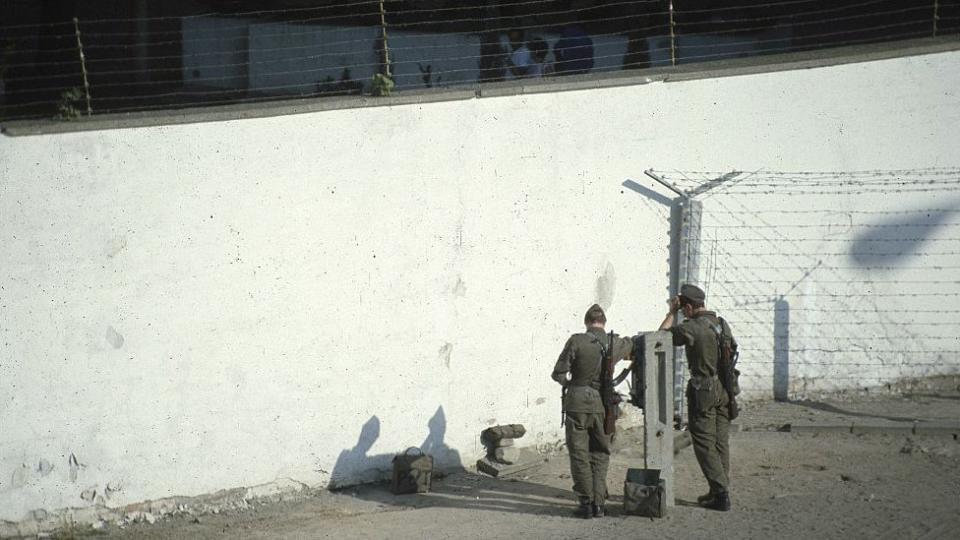International Booker Prize 2024: German win for Kairos

German writer Jenny Erpenbeck and translator Michael Hofmann have won the International Booker Prize.
Their novel Kairos follows the destructive love affair between a 19-year-old student and a married man in his 50s who meet on a bus in East Berlin around 1986.
Their relationship comes to embody the German Democratic Republic's "crushed idealism" and eventual "dissolution of a whole political system".
They will split the £50,000 prize.
Judges chose Kairos from a shortlist of six books and praised the "luminous prose" and rich quality of the translation.
"It starts with love and passion, but it's at least as much about power, art and culture," chair of judges Eleanor Wachtel said.
"The self-absorption of the lovers, their descent into a destructive vortex, remains connected to the larger history of East Germany during this period, often meeting history at odd angles."
Last year's winner, Time Shelter by Bulgarian author Georgi Gospodinov and translated by Angela Rodel, was also set during and after the fall of the Iron Curtain.
Erpenbeck, 57, was born in Berlin and used to work as an opera director before becoming an award-winning novelist. Her works include The End of Days (2014) and Go, Went, Gone (2017) which was longlisted in 2018.
Hofmann, 66, has been called "arguably the world's most influential translator of German into English". Along with poetry and literary criticism, he teaches part-time at the University of Florida.

"The book seems to me like a coin, which has a personal story - heads, as it were - on one side, and tails, the emblem of the state, on the other," Hofmann said about Kairos. "It keeps being spun into the air, and it comes down heads, it comes down tails."
The Booker Prizes celebrate the world's best fiction originally written in English (the Booker Prize) or translated into English (the International Booker Prize).
Translated fiction is growing in popularity among younger readers in the UK, according to data compiled by Nielsen for the Booker Prize Foundation.
Under-35s now account for almost half of all the UK's translated fiction purchases. The biggest demographic group for fiction is made up of readers aged 60 to 84.
Winning one of the Booker Prizes leads to international recognition and a significant uplift in global sales. The publisher of Time Shelter saw sales jump 435% the week after it won in 2023.
Critics have praised Kairos for its complex questions about freedom, loyalty, love and power.
The Guardian called it "one of the bleakest and most beautiful novels", while The Atlantic said its "portrayals of a ruptured country and century are a reminder that novelists can treat history in ways that neither historians nor politicians ever could".
The 2024 ceremony was held at London's Tate Modern on Tuesday and sponsored by fashion giant Maison Valentino.


